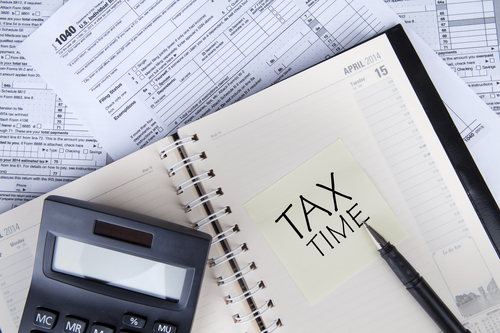By Michael L. Moskowitz and Melissa A. Guseynov
 On September 9, 2016, District Judge Waverly D. Crenshaw, Jr., sitting in the United States District Court for the Middle District of Tennessee, held that a debtor’s tax debt relating to a late-filed tax return may be dischargeable in certain circumstances. Biggers v. Internal Revenue Service, 2016 WL 5121893 (M.D. Tenn. Sept. 9, 2016). Read the full opinion here.
On September 9, 2016, District Judge Waverly D. Crenshaw, Jr., sitting in the United States District Court for the Middle District of Tennessee, held that a debtor’s tax debt relating to a late-filed tax return may be dischargeable in certain circumstances. Biggers v. Internal Revenue Service, 2016 WL 5121893 (M.D. Tenn. Sept. 9, 2016). Read the full opinion here.
This decision widens the judicial split regarding the dischargeability of tax debt for late-filed returns in personal bankruptcy cases. Specifically, the First, Fifth and Tenth Circuits have held that if a debtor’s tax return is filed even one day late, the debt may not be discharged because of the language added to Section 523(a) of the Bankruptcy Code in 2005. However, the Fourth, Seventh, Eighth and Eleventh Circuits adhere to a four-prong test arising out of Beard v. Commissioner, a 1984 Tax Court decision. Courts employing the Beard test focus on the fourth factor, which analyzes whether there was an honest and reasonable attempt to satisfy the requirements of tax law.
Here, the appeal heard by Judge Crenshaw involved chapter 7 debtors who failed to file timely tax returns for tax years 2001 through 2004. Debtors filed tax returns in 2007 and filed for bankruptcy relief in 2009, over two years after filing the late returns. Debtors allegedly had legitimate reasons for the late filings, but the Bankruptcy Court held that the tax liability was non-dischargeable solely because the returns were filed late.
On appeal to the District Court, Judge Crenshaw concluded the Beard test should apply, explaining that the “one-day-late rule” produces a “harsh result that appears inconsistent with the statute’s intent.” Biggers, 2016 WL 5121893, at * 4 (internal citations omitted). Judge Crenshaw also noted that the “draconian result of a per se rule excluding from discharge all untimely tax forms cannot be reconciled with the well-established rule that exceptions to discharge are to be strictly construed in favor of the debtor.” Id. (internal citations omitted). Thus, the District Court reversed the lower court’s decision and remanded the case to the Bankruptcy Court so it could apply the correct legal standard.
The Court’s holding in Biggers confirms the glaring divide between the majority and minority decisions on this issue. Unless and until the split is resolved by the Supreme Court, an individual debtor with substantial tax debt incurred as a result of a late-filed return should consider carefully whether a bankruptcy filing is the best option.
Weltman & Moskowitz will continue to follow and report on this important topic, and we will keep our clients and colleagues informed.
About Weltman & Moskowitz, LLP, A New York and New Jersey Business, Bankruptcy, and Creditors’ Rights Law Firm:
Founded in 1987, Weltman & Moskowitz, LLP is a highly regarded business law firm concentrating on creditors’ rights, bankruptcy, foreclosure, and business litigation. Michael L. Moskowitz, a partner with the firm, focuses his practice on business and bankruptcy litigation, as well as creditor’s rights, foreclosure, adversary proceeding litigation, corporate counseling, M&A, and transactional matters. Michael can be reached at (212) 684-7800, (201) 794-7500 or mlm@weltmosk.com. Melissa Guseynov is an associate of the firm. Melissa can be reached at mag@weltmosk.com.







